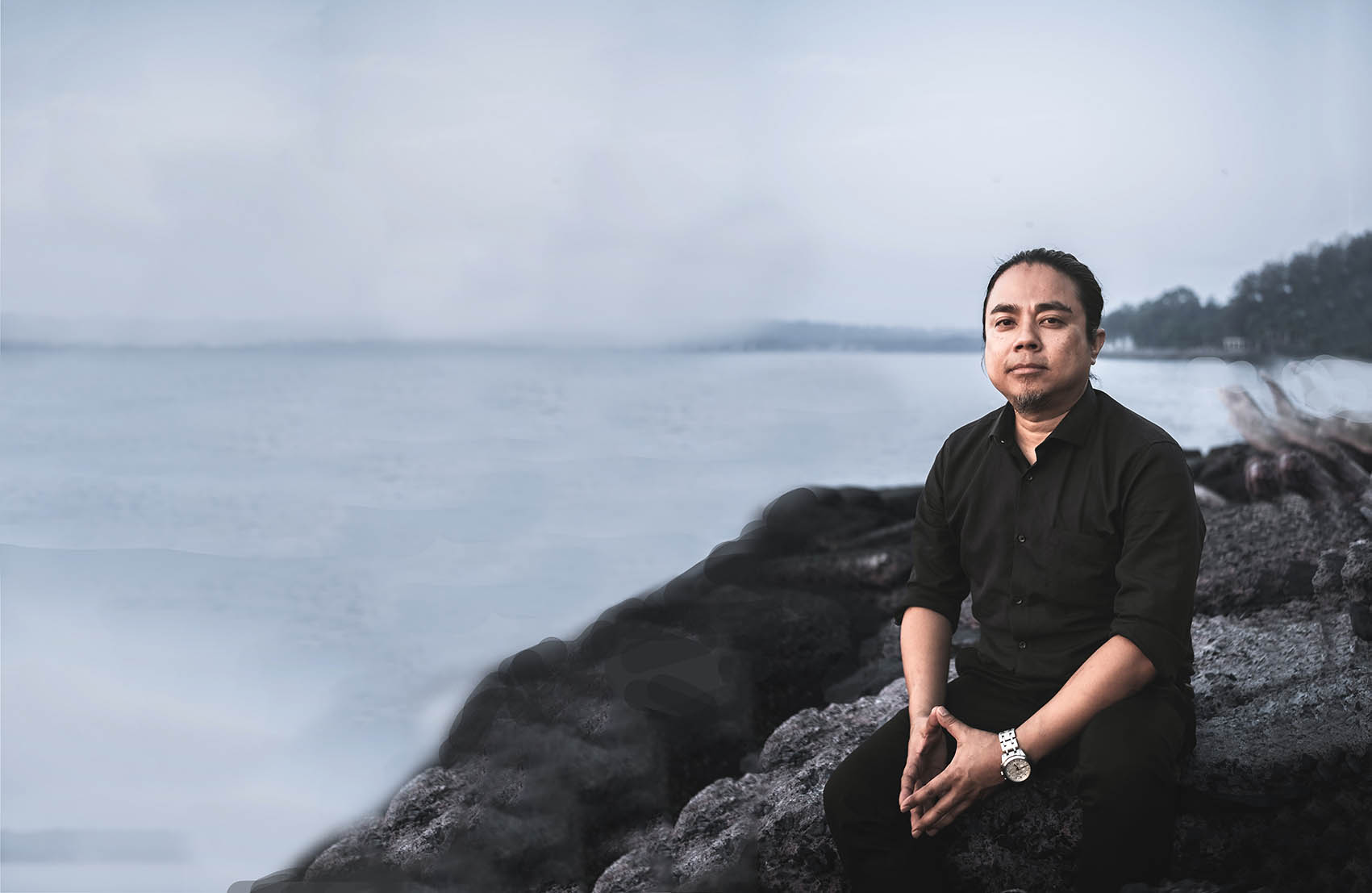Manipur, though small in size, punches well above its weight when it comes to contributions in national and international arenas, particularly in sports, and arts and culture. Despite the absence of a fully-fledged film school, the state has become a creative powerhouse, producing compelling films that have earned acclaim for their storytelling, both at home and abroad. Manipuri filmmakers are not just telling powerful stories but are also gaining recognition in prestigious global platforms.
At the recently held 55th International Film Festival of India (IFFI) in Goa—Asia’s largest film festival—Manipur’s contribution was spotlighted yet again. Borun Thokchom, a national award-winning filmmaker from Manipur, participated as a jury member of the Preview Committee for the International Cinema section. This significant milestone reflects both his personal achievement and the growing reputation of Manipuri cinema.
As Borun attended the prestigious festival, Imphal Review of Arts and Politics sat down with him in Goa to discuss his experiences as a jury member, the state of Manipuri films today, and the pathways filmmakers can explore to elevate their craft and compete at reputed festivals like IFFI.
Excerpts from the interview:
IRAP: You have served as a jury member at the International Film Festival of India, reviewing a diverse selection of films. Based on your experience, what is the status of these films you’ve seen, and what essential qualities should a film have to compete successfully at such a prestigious festival?
Borun Thokchom: Fiction films have already achieved a global standard. When we evaluate films, especially from countries like Ukraine, Japan, Germany, South Korea, and China, their technical aspects—whether it’s cinematography, sound design, or overall production quality—are on par with each other. At the festival, we reviewed around 100 films, and what stood out was the consistency in technical precision across these entries. The primary differentiator became the storytelling itself.
For filmmakers aiming to compete on international platforms, it’s crucial not to compromise on the technical quality of fiction films. This includes using top-notch equipment and maintaining high standards in post-production. The story may be the soul of a film, but poor technical execution can detract from its impact.
In the case of documentaries, there is slightly more flexibility when it comes to technical standards, as the nature of documentary filmmaking often demands mobility and extended shooting periods. For instance, it might not always be practical to carry high-end cameras like Arri models during fieldwork. However, even in this genre, there are documentaries that maintain impeccable technical quality without sacrificing convenience.
For fiction films, though, there’s absolutely no room for compromise in technical aspects if filmmakers aspire to compete in esteemed festivals like IFFI. Every detail matters, and meeting the global technical benchmarks is non-negotiable.
IRAP: What challenges do Manipuri filmmakers face, and what changes are needed for their films to compete at platforms like IFFI?
Borun Thokchom: One of the biggest challenges is financial constraint. Manipur is not a wealthy state, and our filmmakers often work with very limited budgets. This reality necessitates a creative and strategic approach to filmmaking. My firm belief is that we need to invest significant effort in pre-production and planning to ensure the quality of our films, especially on the technical front.
We may not have the resources to shoot for extended periods or use expensive equipment over months, as filmmakers from wealthier countries often do. However, we can mitigate this by being thoroughly prepared. For instance, when we’re 99% sure that our actors and crew are well-prepared—through workshops and rehearsals—we can rent high-quality cameras and equipment for a shorter period. This approach allows us to maintain technical excellence without overspending or prolonging the production process.
Using a DSLR to shoot a feature film, for instance, won’t meet the technical standards required for platforms like IFFI or other reputed festivals. Instead, by preparing extensively and ensuring that every aspect of production is meticulously planned, we can optimize our resources effectively.
Workshops and rehearsals are crucial for preparing actors to embody their roles convincingly, reducing the need for multiple retakes and extended shoots. By combining thorough preparation with careful resource management, we can create films that are both technically sound and creatively compelling, making them competitive on prestigious international stages like IFFI.
IRAP: How significant is the International Film Festival of India (IFFI) for filmmakers, and what does it take to compete there successfully?
Borun Thokchom: IFFI is undoubtedly an important platform for filmmakers, but it’s also a challenging one. To compete successfully, a film must meet a high standard in both technical quality and storytelling. This year, only one Manipuri film, Boong, participated in the festival. Unfortunately, no other films from Manipur made it to the 55th edition of IFFI. This highlights the need for better preparation in the future if we aim to send more films to such festivals.
That said, Manipur does not lack talent. Our filmmakers and artists have immense potential. It’s essential to understand that film selection is highly subjective. IFFI, while prestigious, is not the sole benchmark for cinematic excellence. The outcomes often depend on the jury’s preferences, which can vary widely.
Rejection should not dishearten us. Whether or not a film wins an award or gets selected, the core purpose of filmmaking is to express our perspectives and tell our stories. That expression is more important than any accolade. With better preparation and focus, we can not only compete at festivals like IFFI but also continue to make meaningful films that resonate with audiences globally.
IRAP: Where do you see the future of budding and seasoned filmmakers in Manipur, considering the state’s technical disadvantages and lack of formal courses in filmmaking?
Borun Thokchom: The most critical factor in filmmaking is the passion and interest of the filmmaker. Like any other art form, enthusiasm and dedication are the driving forces behind creating impactful films. The disadvantages we face in Manipur—be it the lack of advanced technical resources or formal training opportunities—do not necessarily hinder our ability to produce meaningful cinema. In fact, these challenges can inspire creativity and unique storytelling.
The current unrest in Manipur, though tragic, can serve as a powerful source of inspiration for filmmakers. History has shown us that great art often emerges from difficult circumstances. For instance, we’ve seen remarkable films come out of Middle Eastern countries that are plagued by wars and unrest. Even now, films are being produced in Ukraine amidst the ongoing conflict, as well as in Russia, and these films are being submitted to festivals.
During my experience as a jury member, I noticed that four central themes dominate contemporary films: conflict, displacement, immigration, and LGBTQ+ issues. These topics resonate deeply with global audiences and reflect the realities of their makers. I strongly believe that the recent conflict in Manipur will inspire a new wave of artistic expression, giving rise to deeply realistic and serious films.
The hardships, sorrow, and unimaginable experiences our people have endured will undoubtedly shape future stories. These films, rooted in truth and resilience, will not only reflect our reality but also find their place on global platforms. I see this as an opportunity for filmmakers—both budding and seasoned—to channel their emotions and experiences into creating art that speaks to universal themes, transcending the limitations of resources and formal training.
IRAP: Beyond the current unrest in Manipur, filmmakers face significant challenges, such as a lack of technical equipment and the absence of formal film education opportunities. In such circumstances, how can filmmakers navigate these limitations and create impactful stories?
Borun Thokchom: It’s important not to see ourselves as victims of these disadvantages. Many countries around the world face challenges far greater than ours, yet they manage to produce high-quality films that compete on global platforms. Instead of being discouraged, we need to focus on overcoming these obstacles through determination and creativity.
While it’s true that we don’t have a dedicated film institute in Manipur that is providing full-fledged film courses, this shouldn’t be seen as a limitation. Many successful filmmakers around the world, including the legendary Satyajit Ray, never attended a film school. I’m not dismissing the value of formal education in filmmaking—it’s undoubtedly beneficial—but it’s not the only path to success. What matters most is your passion for the craft and your love for storytelling.
Filmmaking is an art form without rigid rules. There is no definitive textbook or formula for how a film must be made. As long as you have a story to tell and the determination to tell it, you can create impactful films in your own unique style. Whether or not you’ve studied in a film school, what truly defines success is your dedication to honing your craft and your ability to connect with audiences through authentic storytelling.
By focusing on the resources we do have and channeling our passion, filmmakers in Manipur can rise above these challenges and create cinema that resonates deeply, not just locally but on global platforms.
IRAP: What are the disadvantages that you think, if the government or the public lend support, would help in addressing these challenges and enable filmmakers to produce good films?
Borun Thokchom: We should not always depend on the government. Instead, we should focus on continuing our work, and eventually, we will hit the mark. There are many successful filmmakers, and by discussing and collaborating with each other, we can enhance the quality of our films. The frustrations and unpleasant experiences we face can be expressed through art, particularly through films, which allows us to produce truly meaningful works.
We’ve seen incredible films coming out of places like Ukraine and Lebanon, where filmmakers work amidst challenges but create films with a human touch, heart-wrenching stories that resonate deeply. Similarly, we in Manipur have experienced killings, death, and other tragic incidents. These experiences can inspire films that represent these heart-wrenching events and reflect the reality of sorrow and hardship.
For aspiring filmmakers in Manipur who want to make films but don’t know whom to approach or where to start, networking is key. Manipur is a small state, and people know each other well. I followed many seasoned filmmakers during my early years, and it’s up to individuals to connect with experienced professionals to learn the skills. For nearly 10 years, I learned by assisting seasoned filmmakers, which gave me practical knowledge beyond what I studied in mass communication and film production.
The practical experience I gained working alongside filmmakers taught me that filmmaking styles differ based on context. For instance, the Mumbai style of filmmaking is quite different from the style we follow in Manipur. The way we think and tell stories is distinct. Even those who have studied in reputed institutions need hands-on experience here to adapt and create films that align with our local context.
By actively engaging with seasoned filmmakers and understanding the unique filmmaking style in Manipur, aspiring filmmakers can overcome challenges and make impactful films that resonate with our stories and realities.












